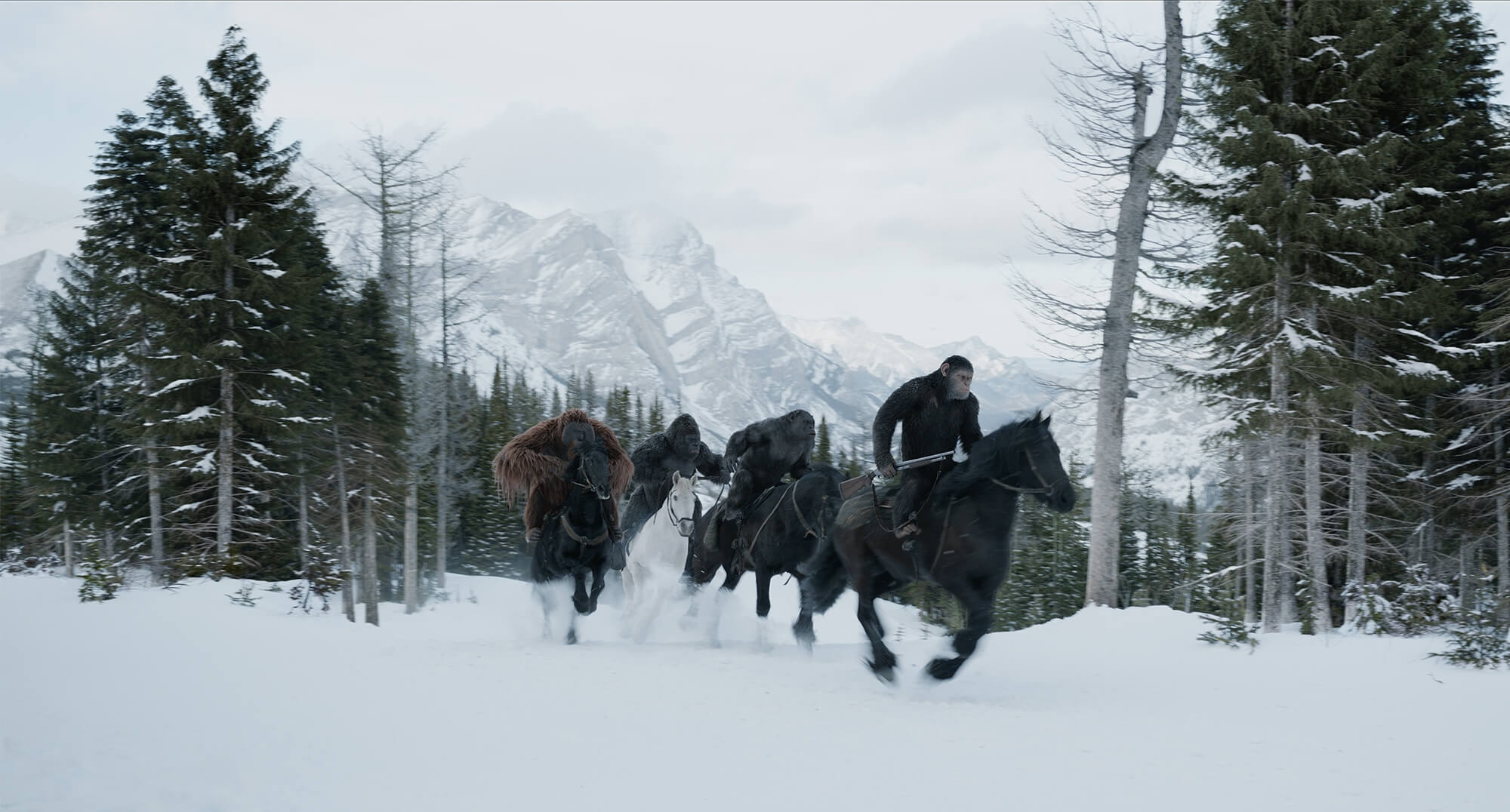
A decent end to an intriguing trilogy, though it is bogged down by a sense of storytelling inertia and predictability that hampers it from greatness.
Rating: 3.5 stars / B
“This war is madness.”
The finale to one of the better trilogies, science-fiction or otherwise, of recent times, War for the Planet of the Apes is an epic last hurrah for Caesar, the talking ape as performed by the versatile Andy Serkis, who suffers unimaginable losses, but stands strong as a leader to his kind.
In a way, I would like to see the trilogy as an evolutional fantasy. The films are not just about the survival of the fittest, but a reflection of our human desire to destroy those that threaten our kind. One could even make the claim that the ‘Apes’ trilogy is a cautionary tale on the perils of supremacism and the need for peaceful co-existence, very much the state of our ruinous world for the longest time.
Motion capture technology has developed so rapidly that it is quite the miracle to witness the scale of War, a film that pits the apes against humans, led by an uncompromising Colonel (Woody Harrelson). Can it finally win the Oscar for Best Visual Effects? Hopes are high with this one.
Director Matt Reeves, who returns from Dawn of the Planet of the Apes (2014), delivers a decent movie, one that is sure to light up the box-office. For those who are adverse to the idea of talking apes, good word-of-mouth and strong reviews should be enough to convince them to take the plunge.
War may be a competently-crafted Hollywood blockbuster that balances pathos with spectacularity, but I find that it is done so well to a pronounced fault. The dramatic scenes are very precise, in its pacing and editing of action and reaction shots, such that there is a sense of predictability to the proceedings. It is akin to a textbook example of how to tell a story the right way, leaving very little room for any shifts in tone or emotion.
A good example is the introduction of a new ape character midway, whose presence is meant to push the narrative forward and to provide comic relief in what is a bleak movie. But this character, awkward he may be, offers little relief. And if he does more, it would mess up the tone of the film. In other words, Reeves’ has made such a one-note film that it could only operate within its limitations—something like digging a hole wide enough for one to enter or exit, but not move laterally from within.
Compare this to Dawn or even the first instalment, Rise of the Planet of the Apes (2011), and you may feel that difference. It is no surprise that the storytelling inertia—marked by the film’s constant reliance on the us vs. them trope, and the action vs. reaction shooting style—has contributed to the film’s longer-than-usual 140-minute runtime. There’s simply no other way to tell the story, but to take it step-by-step, ticking checkbox-by-checkbox, and this hampers War from greatness despite the film being absolutely visually stunning.
Review #1,476 / © Eternality Tan http://filmnomenon.
Photocredit @ 20th Century Fox
